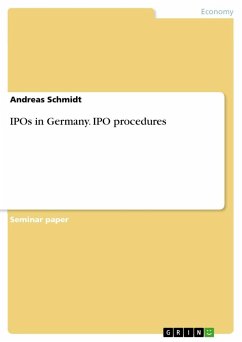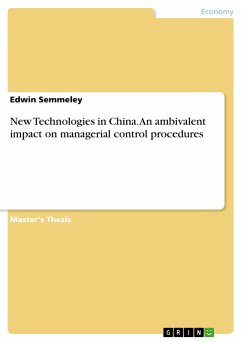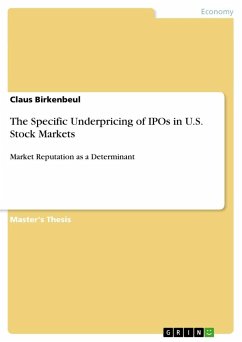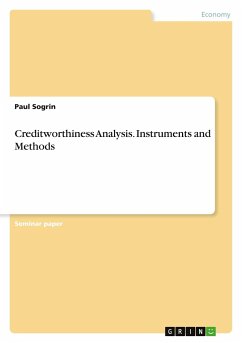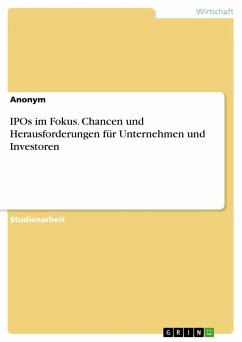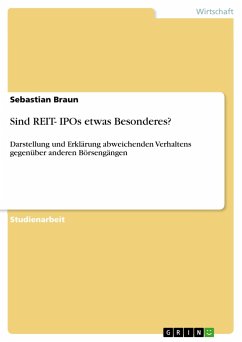Seminar paper from the year 2018 in the subject Business economics - Banking, Stock Exchanges, Insurance, Accounting, grade: 2,0, University of applied sciences, Munich, language: English, abstract: It was the 25th of April in 2013 when the newspapers headlined the successful initial public offering (IPO) of Evonik, the German chemistry company. "Evonik finally finds the right chemistry" reported the Financial Times whilst Reuters wrote "Evonik celebrates stock market premiere". Prior to the successful listing in 2013, Evonik had postponed such transaction three times already, citing adverse market conditions as the reason. Adverse market conditions are widely used as the most common reason for withdrawing or postponing an IPO, with insufficient investor demand also being given as an explanation to not proceed with the transaction, as evidence by German real estate company Deutsche Annington. Listing a company on a public stock market is not an easy task, but rather a very time consuming and expensive process. The most crucial part of the entire transaction is finding the right offer price at which company is offering its shares to investors. The aim of this paper is to explain and describe the IPO process in general, with a special focus of the techniques on how the issue price will be derived. The thesis begins with a theoretical section describing and explaining the basic process of an IPO as well as clarifying basic definitions. Subsequently, the main techniques how the issue price is set will be explained and analyzed. The theoretical part is followed by a practical section, using the example of Evonik to analyze how its issue price was determined. The last chapter contains a final conclusion summarizing the findings of the paper.
Hinweis: Dieser Artikel kann nur an eine deutsche Lieferadresse ausgeliefert werden.
Hinweis: Dieser Artikel kann nur an eine deutsche Lieferadresse ausgeliefert werden.

